The activities of the relevant social services in relation to Russian veterans are regulated by the Federal Law "On Veterans". What are the provisions of this bill? The answer to this question will be presented in the article.
Veteran Categories
Article 1 of the Federal Law "On Veterans" regulates the main categories of persons under consideration. At the moment, the following citizens can be recognized as veterans in the territory of the Russian Federation:
- persons who participated in the Great Patriotic War;
- labor veterans;
- participants in hostilities in Russia, the USSR or other states.
Merits for the defense of the Fatherland, the impeccable performance of military service, long-term and high-quality labor activity - all these are factors that significantly contribute to the assignment of a person the status of a veteran.
Veterans of the Second World War can be called persons who participated in the hostilities from 1941 to 1945 for at least 6 months. Veterans of the remaining hostilities are military personnel who participated in hostilities in various cities or states on the orders of Russian or Soviet authorities.
About labor veterans
Article 7 of the Federal Law "On Veterans" enshrines the main features of a labor veteran. In order to receive the presented status, it is necessary to have an appropriate certificate, as well as orders, diplomas or medals of the Russian Federation or the USSR.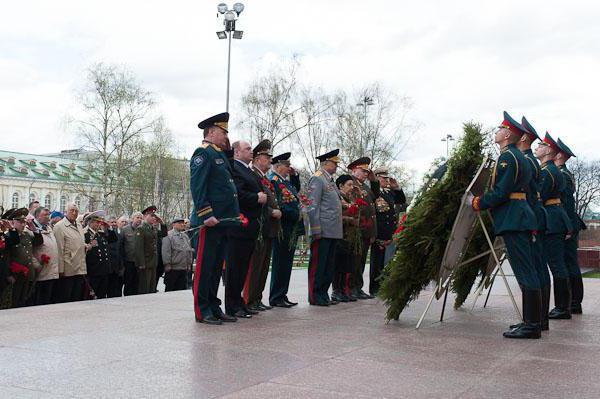
To obtain the status of Veteran of Labor, it is necessary to work effectively for at least 15 years in any one field of activity. The seniority for receiving pension payments will be as follows:
- 25 years minimum for males;
- 20 years minimum for women
Only the Government of the Russian Federation can assign the status of a labor veteran. In this case, the appointment of individual insignia, which make it possible to obtain the status in question, can be carried out by any federal state bodies, corporations or organizations.
Public policy
The Federal Law "On Veterans", namely its eighth article, enshrines the main types of social support for the represented category of Russian citizens. What exactly needs to be highlighted here? Firstly, in government bodies should create appropriate structures for veteran affairs. Secondly, measures of social support of both veterans themselves and their families should be qualitatively implemented. Both the federal budget and the budgets of the constituent entities of the Russian Federation should periodically allocate funds for the implementation of social support. The bill is reinforced by the need to carry out propaganda using the media, which would speak about the importance of military and labor service, as well as the importance of state awards issued for feats.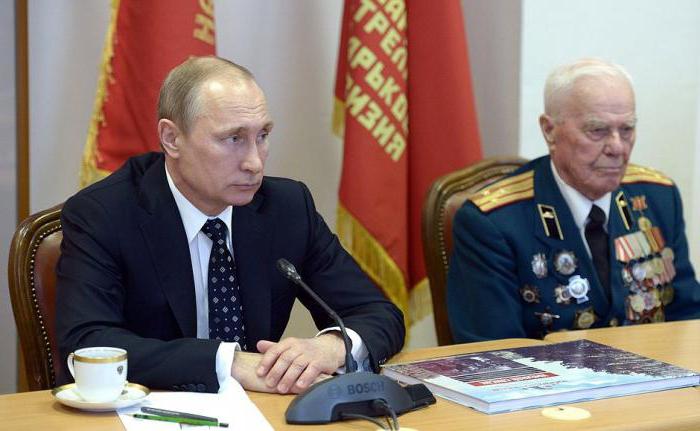
The competent implementation of state policy with respect to veterans is a function of federal state bodies, as well as bodies of subjects and local governments.
About social support
The entire second chapter of the Federal Law "On Veterans" is devoted to social support for veterans. What exactly is it about? Here are the main points from the law:
- the implementation of timely retirement benefits, the payment of benefits in accordance with the laws of the Russian Federation;
- making monthly cash payments;
- the provision of quality medical care, including prosthetic and orthopedic;
- compensation for utility costs;
- the provision of residential premises.
The law says that the provision of social support in the same form is not possible.A veteran must choose one thing.
Measures of social support for disabled veterans are somewhat different. They have the right to extended types of assistance - for example, installing a telephone, providing prostheses, using some types of services extraordinary, etc.
Social support measures
It should be noted that the draft law provides only general guidance on what kind of benefits are due to war or labor veterans. More specific data that do not contradict the law in question should be enshrined in the laws and regulations of the constituent entities of the Russian Federation. 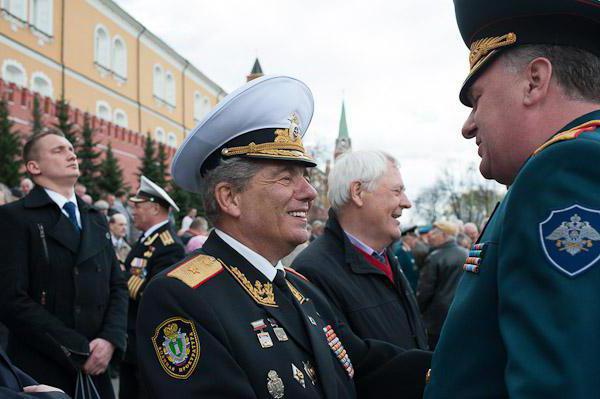 This is exactly what Article 22 of the Federal Law on Veterans Says. This provision was adopted on August 22, 2004.
This is exactly what Article 22 of the Federal Law on Veterans Says. This provision was adopted on August 22, 2004.
Articles 22 and 23 of the Federal Law "On Veterans" also speak about the main types of cash payments expected to veterans. This will be described later.
Monthly Payments to Veterans
Does the Federal Law "On Veterans" say something about the sums of money supposed to be considered for this category of citizens? Article 23 describes in detail both the types of payments and the procedure for their purpose. So, the following types of citizens are entitled to a monthly payment:
- war invalids - in the amount of 3 thousand rubles;
- persons participating in the Second World War - in the amount of 2.3 thousand rubles;
- labor or war veterans;
- blockades - in the amount of 1.7 thousand rubles.
- family members of war invalids.
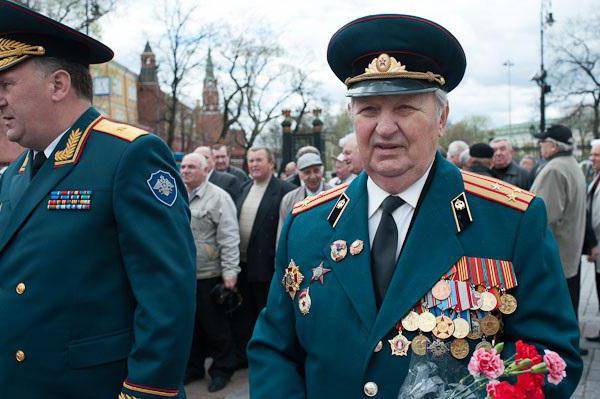
For other persons, payments must be assigned according to separate local acts. In this case, the amounts issued must be subject to annual indexation. Monetary amounts are established and issued by the territorial authority of the Russian Pension Fund. Sometimes part of the cash payment can go to finance the already listed above social services for veterans. The Federal Law of 1999 “On State Social Assistance” establishes a similar norm.
It is also worth noting that the social support bodies of the considered groups of the population are obliged to pay housing bills, improve housing conditions for needy veterans, and also help in transferring contributions for the overhaul of the apartment building.
Article 23 of the Federal Law "On Veterans" also states that all funds received should be used by state authorities strictly for their intended purpose. Otherwise, the offending authorities will be held liable in accordance with Russian law.
Funeral services
The Federal Law on Veterans of Labor or Military Operations, namely article 24, establishes the procedure for the provision of funeral services. So, according to the bill under consideration, the burial of deceased or deceased veterans should be carried out only in those places indicated by the relatives of the deceased (of course, the burial place must meet the requirements of the law "On burials and funeral affairs").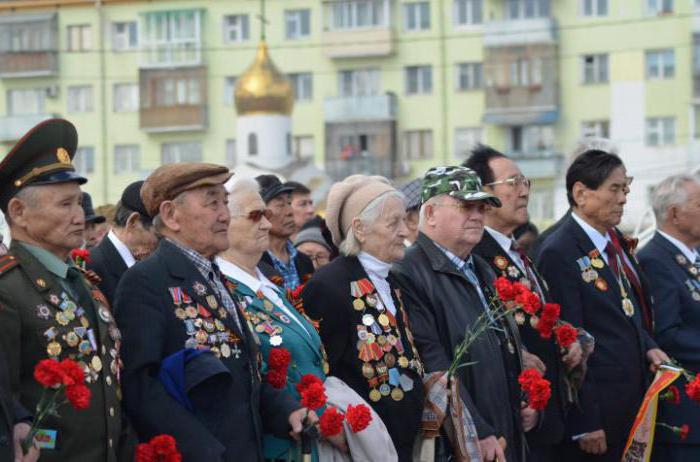
The costs associated with the preparation of the body, its transportation, cremation or burial, the manufacture of a monument, the award of military honors - all this should be reimbursed from the budget.
Veteran Associations
The Federal Law under consideration also establishes the existence and operation of public associations of veterans. What is it and why are such associations necessary? The bill speaks of protecting the legitimate interests and rights of veterans. It is for such purposes that appropriate public associations should be created.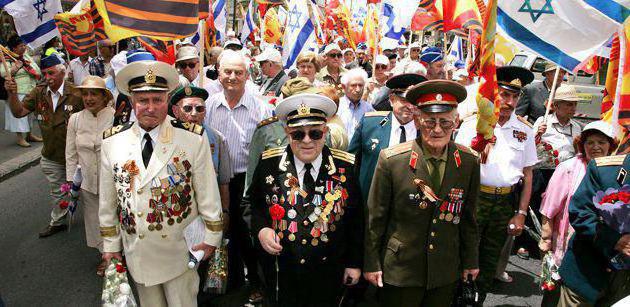
Federal state bodies, bodies of subjects or local self-government - all these instances are obliged to render all possible assistance to the effective activity of associations. Decisions made on issues of social support for veterans should also be made by these bodies.
It is still not very well known how effective such associations are, and indeed whether they exist in Russia at all.Nevertheless, Article 25 of the Federal Law in question does not disclose in detail the need for such associations.
Judicial protection of veterans
What other privileges does the Federal Law "On Veterans" establish? Benefits, according to this bill, can be not only monetary, or consisting in the form of social services. Thus, articles of the Federal Law "On Veterans" No. 27 and 28 speak of such a benefit as judicial protection. What is worth talking about here?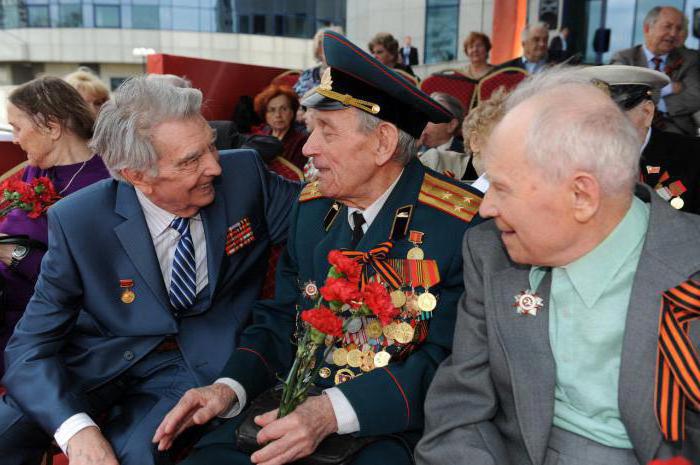
Any veterans have the opportunity to apply to the court for the protection of their rights established by relevant federal laws or regulations. Violation of rights can be expressed in various forms: a lack of cash payments, failure to provide veterans with statutory benefits and other types of non-performance by the authorities. It will be enough for veterans only to submit the corresponding application - directly or through intermediaries. The court will examine the complaint, provide protection and satisfy the applicant's claims.
The law under consideration also fixes a number of documents confirming the rights of veterans and members of their families. Article 28 of this Federal Law gives special guidelines on how uniform certificates should look.